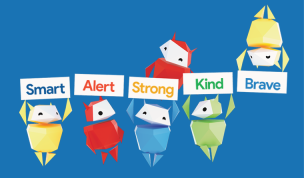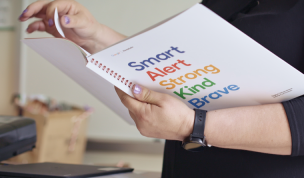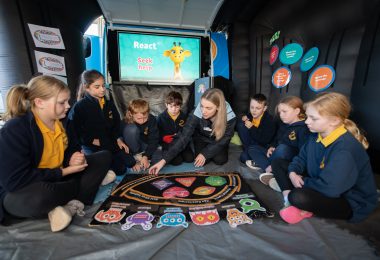Consent education starts way before the ‘sex talk’

Most parents want their children to grow up with a good understanding of healthy boundaries in relationships. However, many parents feel unprepared to have these tricky conversations, and need support – especially parents of younger children.
In fact, a recent survey of more than 4000 NSW parents found that a third feel uncomfortable to have these talks, and almost half say they need support.
So how do parents navigate these conversations? According to Life Ed Australia CEO Kellie Sloane, consent education should happen well before the preteen “sex talk”.
Consent and respectful relationships have been in the spotlight, with the news that these areas are set to be strengthened in the Australian curriculum from 2023. These changes were endorsed by state and territory Education Ministers on April 1, and will apply to children and young people from foundation all the way to Year 10.
The Life Ed program teaches children from 3-13 years important skills to foster healthy relationships, including identifying and responding to safe and unsafe behaviours, what a healthy friendship looks like, how to foster empathy, strategies to communicate effectively and assertively, in an age appropriate way. Children in upper primary learn explicitly about consent, including what it looks like, sounds like, and feels like.
There are many ways parents can support their children to learn about consent and respectful relationships, including fostering open and honest conversations and introducing fundamental ideas around consent such as agency, permission and personal boundaries.
“Early education about consent lays the groundwork for healthy and respectful relationships. When your child knows about getting and giving consent, they’re more likely to have healthy, respectful, safe and enjoyable sexual experiences when they’re ready for them,” Sloane said.
Tips for parents: How to talk to your children about consent
Make home a safe place to have conversations. Encourage kids to come to you with their questions and problems. Listen to them without judgement. Use it as an opportunity to build trust, and also to role model open communication. This can be as simple as asking questions and really listening to their answers.
Start talking early. Early talks when children are young lay the groundwork for open and direct conversations as children get older. For your younger child, you can introduce ideas about consent without relating it to sex. With young children, you start with simple conversations that engage children about thinking about relationships and the way that people treat them and the way that people treat others. For example, you can talk about your children’s friends. You could ask your child about the qualities they value in friends and the signs that friends care for and respect them. This can be a way to introduce the idea of respectful relationships. And as your child gets older, you can start talking more openly and directly about sexual consent.
Let the conversation happen naturally. Let conversations grow organically from every day experiences you have together. This is much better than sitting down and having a formal talk. Embrace opportunities to discuss these issues as they come up. For example, there might be a scene in a TV show or movie that could start a conversation about respectful relationships. Ask them questions like “What do you think of that?”, “How would someone feel if they were treated like that?”, “What could they have done better?”. These conversations build the foundations of future discussions are more challenging topics.
You have to keep having the conversation. It is something that you build upon. Talk early and often, building on the conversation and developing the trust of talking together.









